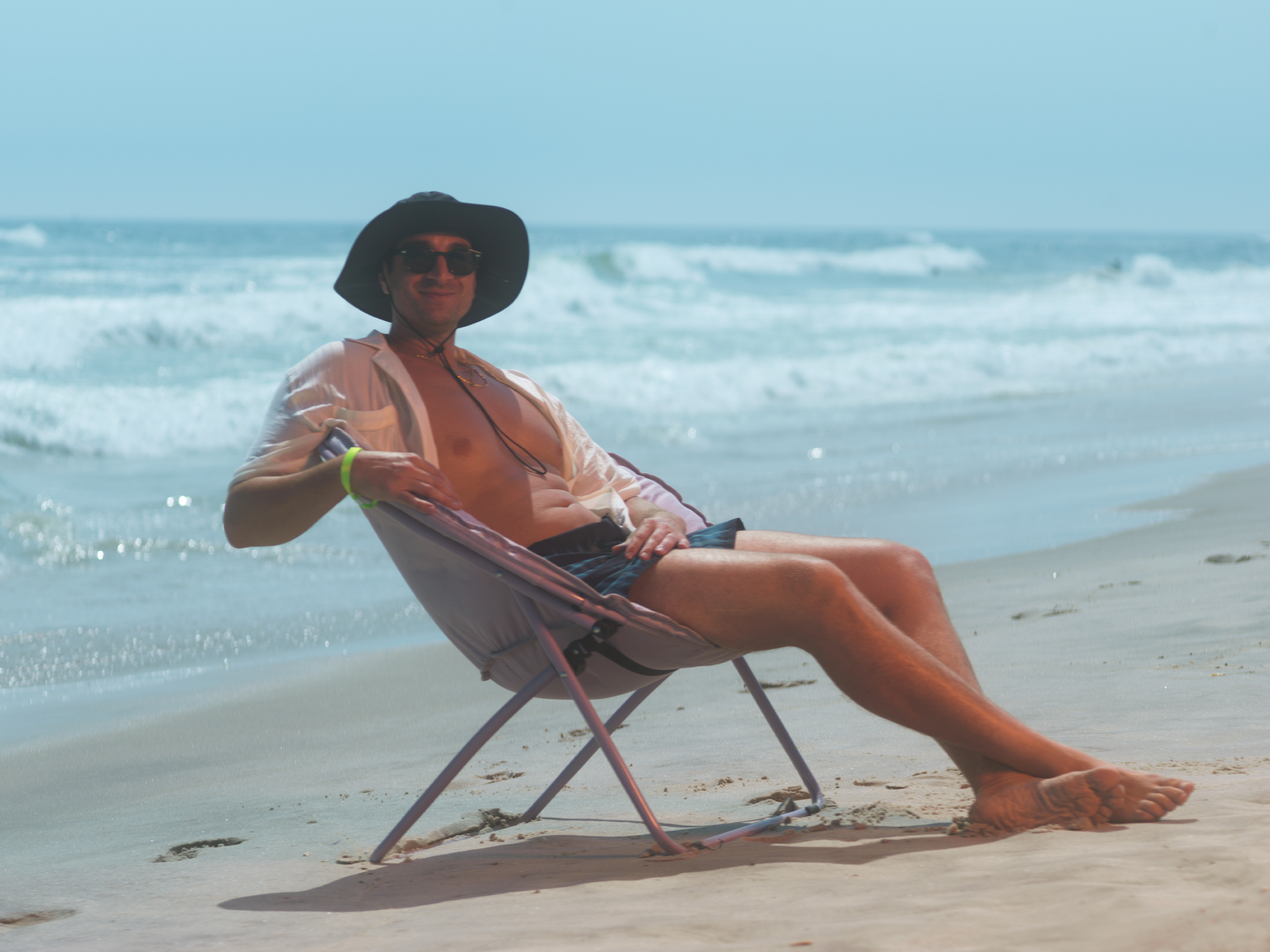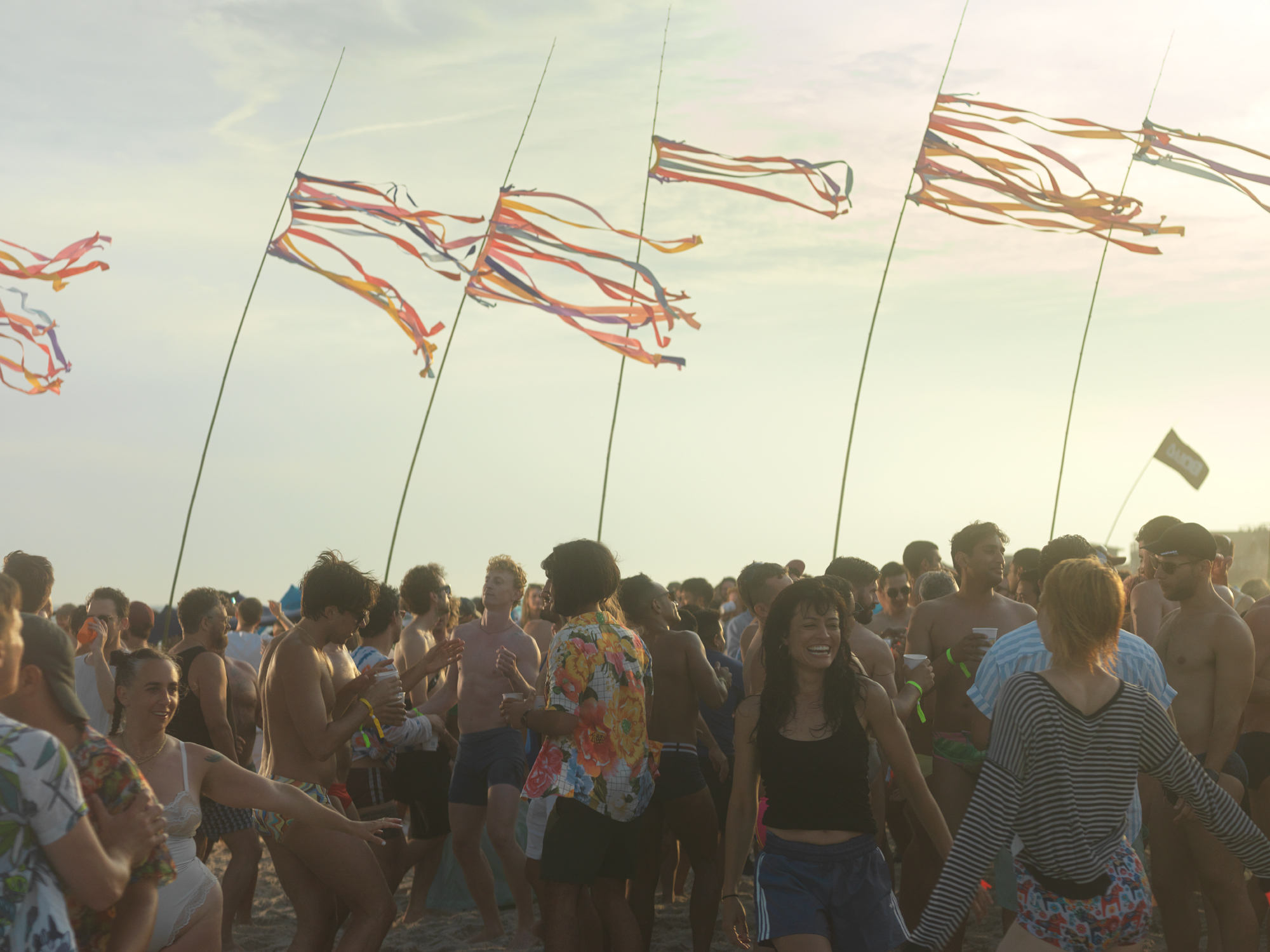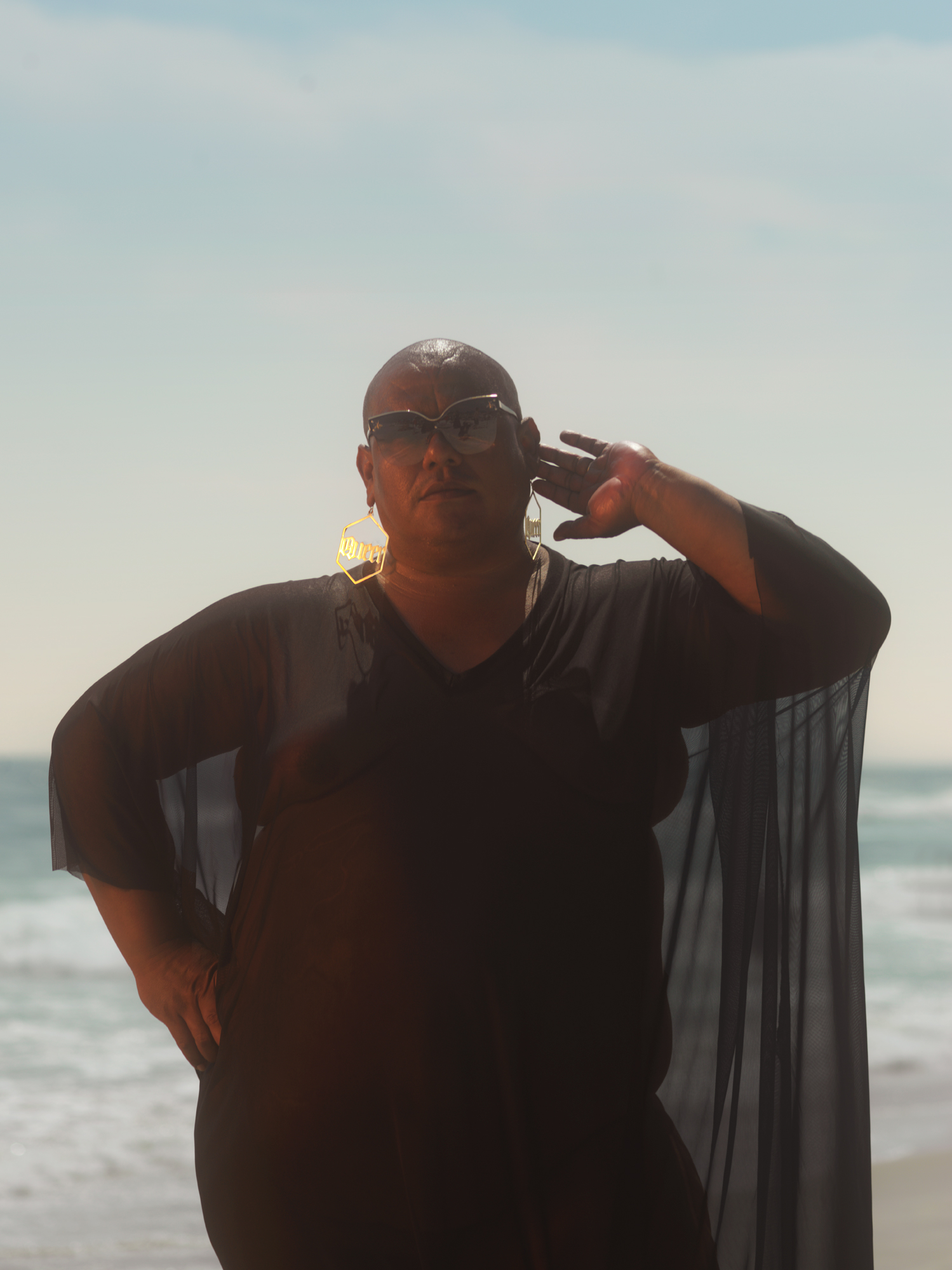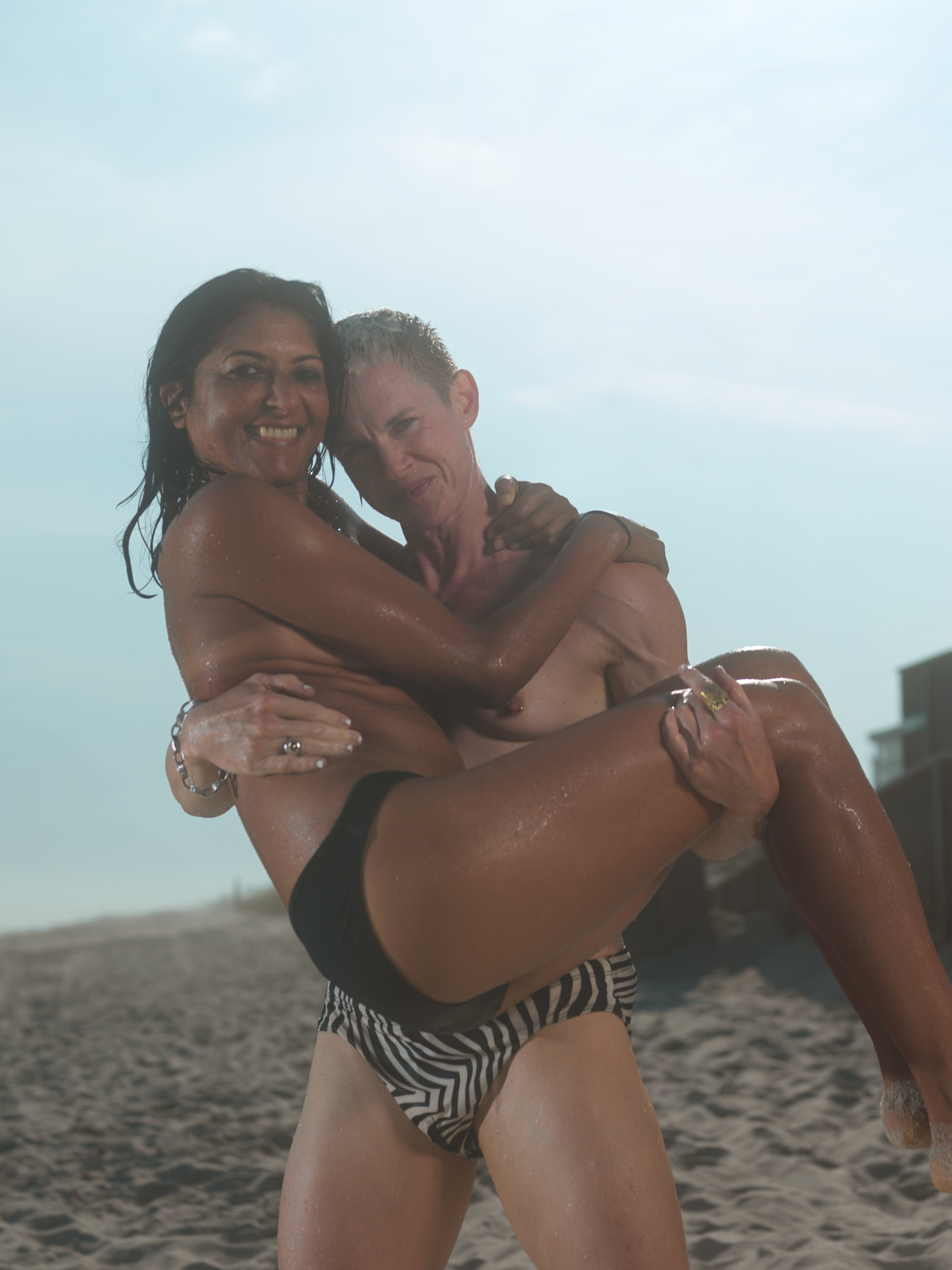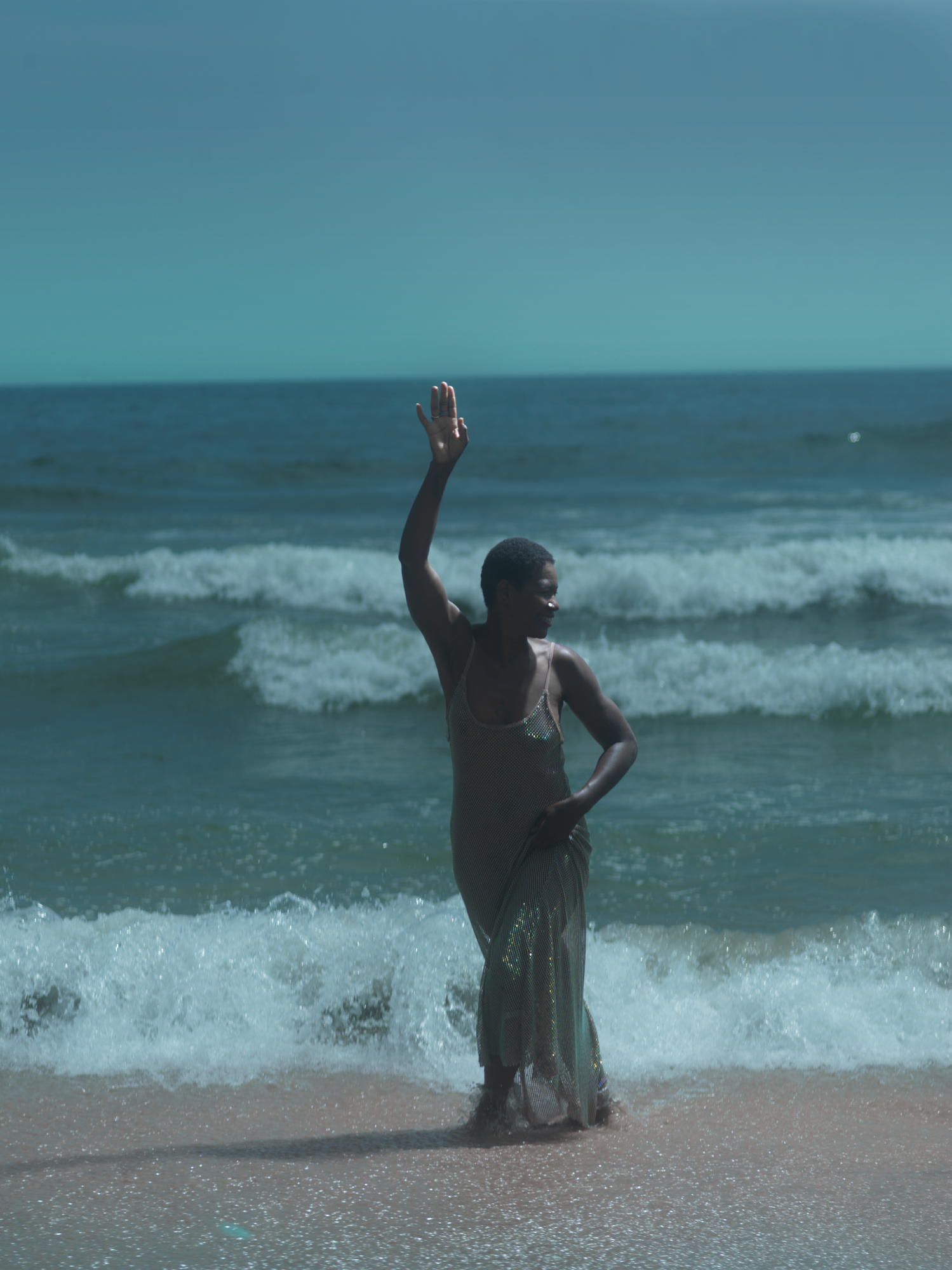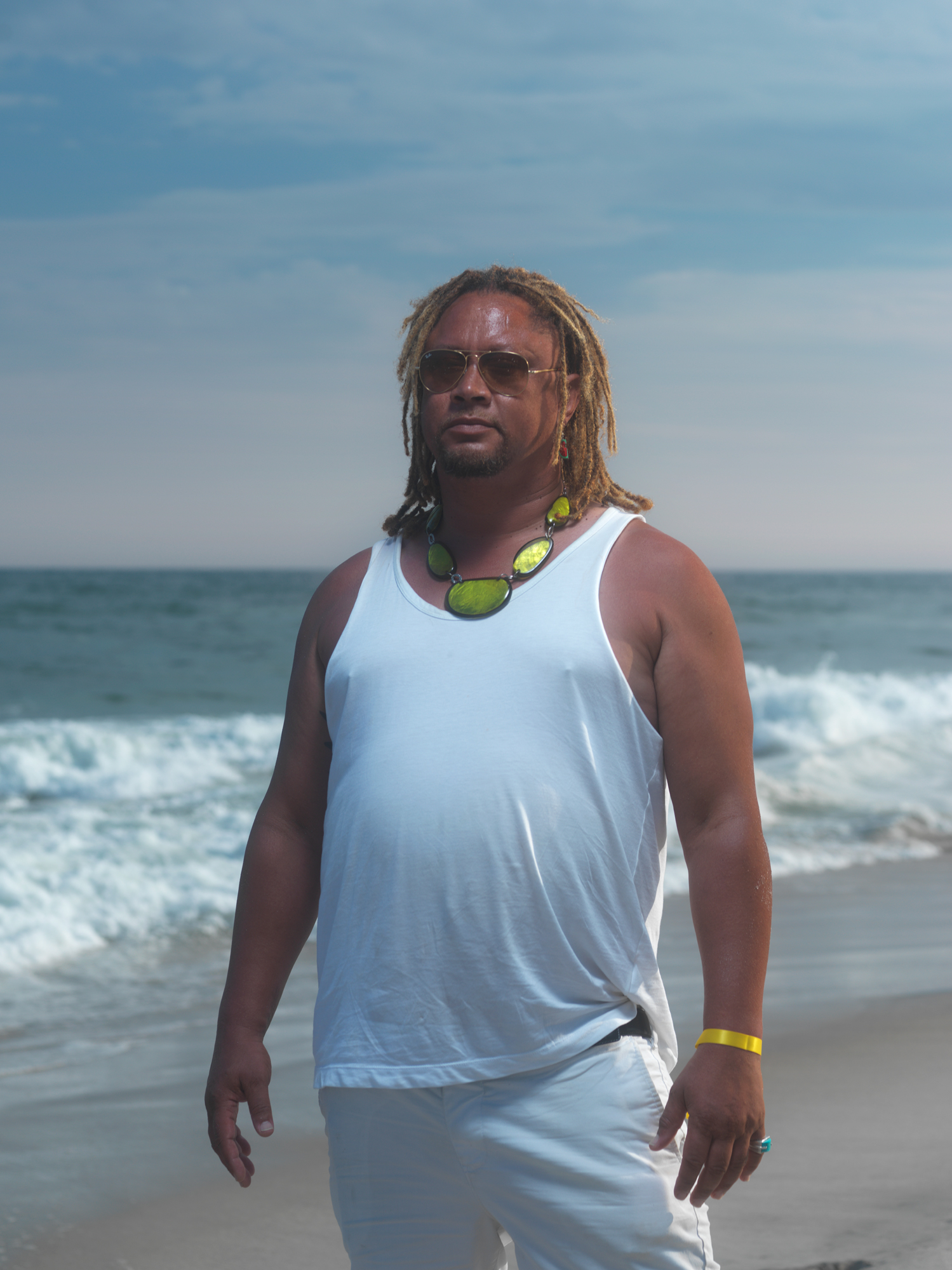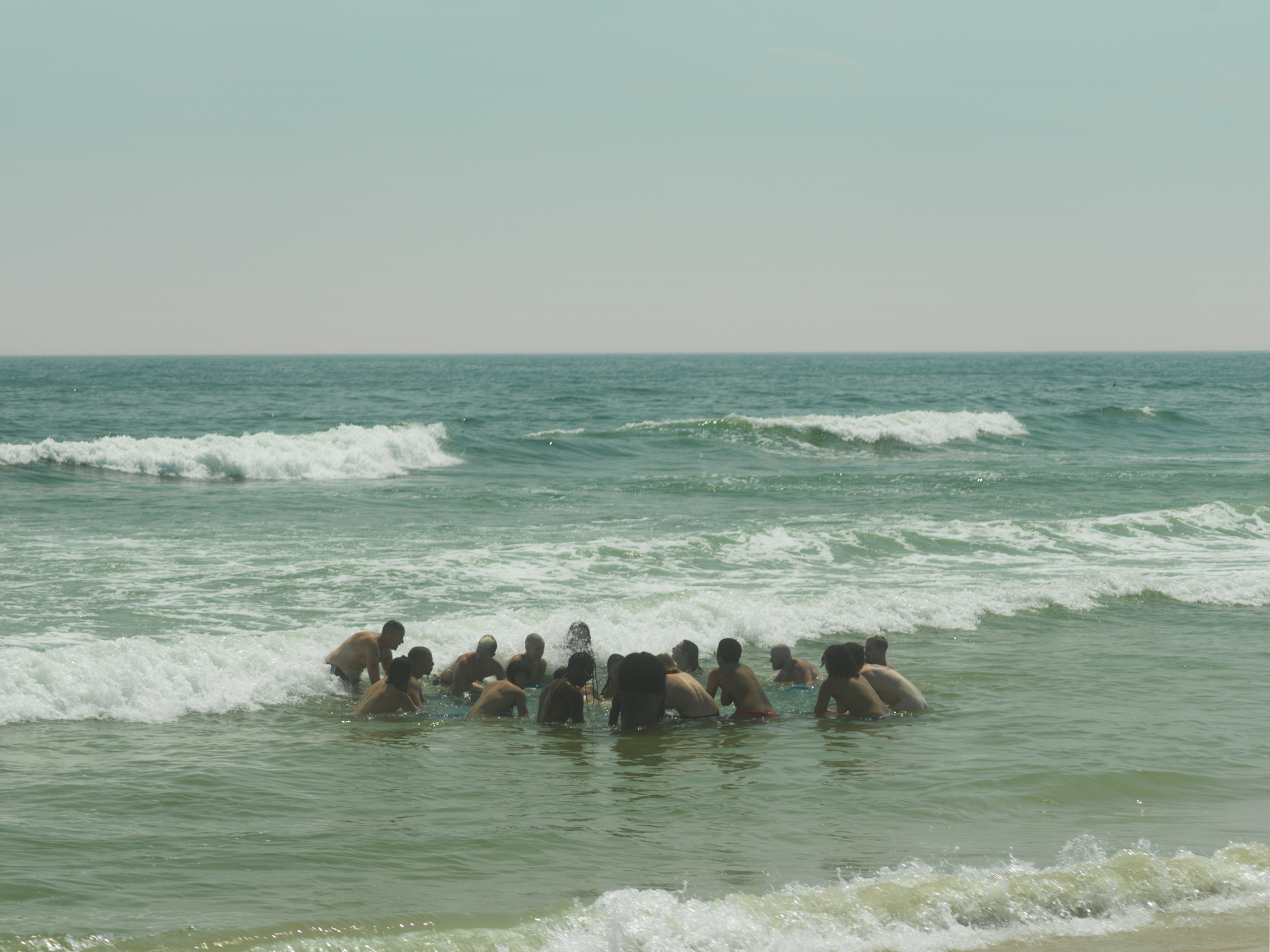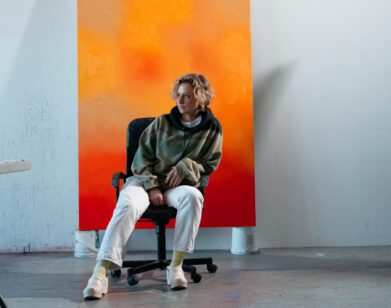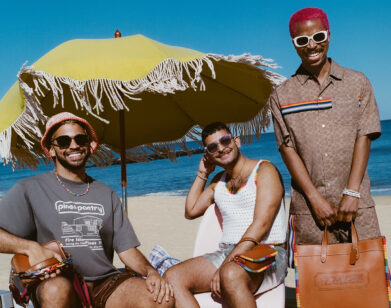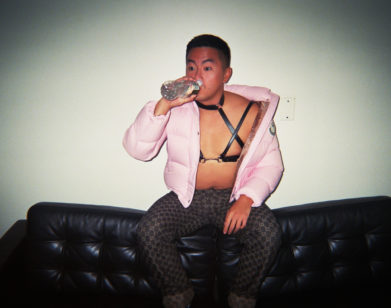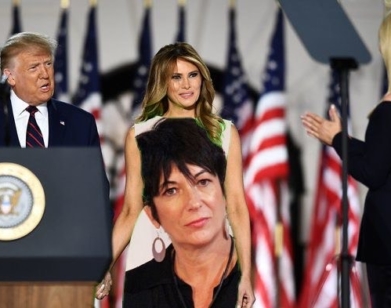FIRE ISLAND
“Striving Towards Utopia”: Inside the BOFFO Performance Festival
On the ferry heading to the Fire Island Pines, I overheard a sassy twink—wearing a t-shirt that read “Will Suck Dick for Beyoncé Tickets”—lamenting a recent click-baity Vogue article titled, “How a Trans ‘Doll Invasion Took over a Historically White, Cis Vacation Spot in Fire Island.” “How rich,” he bitched to his friends. “Five minutes ago, Vogue discovered trans people exist and now the historically white cis magazine is shaming us for not being inclusive!” Leading up to last weekend’s BOFFO Performance Festival, the column was a hot topic, with the controversy centered on a bombastic statement made by the Invasions organizer, Fran Tirado, which read: “Some of the worst people in the world live and thrive in Fire Island.”
Often referred to as a gay utopia, Fire Island is one of the few places in the world where the gay population far outnumbers that of the straight. And, after the murder of George Floyd, while much of America’s left is asking how we can create a more equitable and inclusive future, many in the LQBTQ+ community are asking the same question of their island. When the Pines was developed in the 50’s, it was white gay men that had the economic and social capital necessary to buy beach homes and cultivate the visionary and hedonistic gay getaway. But in the last decade, the racial and sexual identity of the island has evolved, and it’s safe to say no organization has done more to make the beach town more welcoming and inclusive than BOFFO, a non-profit organization whose mission statement pledges to “create a sense of place that is more interesting, active, and engaged.” In 2012, BOFFO began offering artists residencies on the island and boasts an impressive track record that includes Brontez Purnell, K8 Hardy, Lafawndah, Jacolby Satterwhite, Telfar Clemens, and Ser Serpas. The cornerstone of the program is its annual performance arts festival, now in its eight year, and last week’s edition was an absolute triumph for all who participated.
The curator and Yale professor Tavia Nyong’o set things in motion by inviting five performance artists to interpret his theme, “Fugitive Intimacies.” This led to a range of artistic expressions by the visiting artists, among whom were Mayfield Brooks, Cassilis, Dazié Grego-Sykes, Dorian Wood, and Roco Córdova and Shamel Pitts (Tribe). In their performances, they addressed issues as charged as race, gender identity, PrEP, AIDs, capitalism, climate change, and even witchcraft. Brooks kicked off the festivities with an unbelievable performance in which they seemed to summon the rain, and even a live whale, on command. Over the course of the day, I caught up with several of the artists, as well as BOFFO’s founder, Al-Shathir and the curator, Nyong’o, to reflect on their experiences at the festival and the island’s past, present, and future. Afterwards, they sat for portraits by the photographer Matt Grubb.
———
Faris Saad Al-Shathir
BULLOCK: It seems like last year’s festival was a stressful one, and it feels like you learned a lot from those challenges.
AL-SHATHIR: Very true. I’m very thankful for my team, and for Tavia, the curator this year, who I think really grounded the artists and the production.
BULLOCK: What year of the performance festival is this?
AL-SHATHIR: I think it’s the eighth.
BULLOCK: What do you think it brings to the island?
AL-SHATHIR: The people, first of all. If you come to this day on Fire Island, you see racial diversity and a body diversity that isn’t always so present out here. So I think that’s pretty striking to a lot of people who are familiar with this place. And I think a lot of the performers are working with subject matters that are challenging and relevant and they’re creating a dialogue out here. So I think there’s both this feeling of celebration and joy, but also reflection on a lot of things that we need to be thinking about.
BULLOCK: How has the community’s embrace of the festival changed?
AL-SHATHIR: I mean, people have really come around. After George Floyd’s passing in 2020, there was a big awakening around the world, around the country, and definitely out in Fire Island. And I think a lot of people were looking at who in this community were doing things aligned with the way things should be. And it feels good to be at this moment like the community feels is behind us and we’re all working towards a similar goal.
BULLOCK: There’s been a lot of critique of the lack of diversity on Fire Island.
AL-SHATHIR: Yeah. Listen, I think the critique is fair. We should all be in a place of critique because there’s so much room for growth. But utopia doesn’t exist in reality. We’re striving towards utopia. And I think that this place is ripe with opportunity to continue to strive and dream and to try to make things reality. If you’re here to critique, come out here and make a difference, try to change this place. I mean, BOFFO has been providing space for artist out here for 12 years now and I look around and today the island feel’s really different than we started. So let’s be open to the critique and be open to change.
———
Tavia Nyong’o
BULLOCK: How did you come to curate the BOFFO Festival?
TAVIA NYONG’O: I was invited by the festival director after just showing up at the festival for many years and also working with two of the artists from last summer.
BULLOCK: What do you think Faris saw in you that led him to ask you?
NYONG’O: That’s a great question. Honestly, I think a lot of it had to do with the way I work with artists. I’ve also been curating other places in the city for a while. I’m primarily an academic, but ever since the pandemic I’ve been doing more curating. Currently I curate the Park Avenue Armory mostly. In the past I’ve curated at just museums in the US and abroad. BOFFO is a real transition for me into a unique kind of festival curation. It’s very unlike any other kind of theater or even performance festival. And the audience is totally unique and participatory. It begins with the most basic element of performance: draw a circle in the sand. What merges from that? It’s step one, and anything can happen from there.
BULLOCK: What was your vision for the festival?
NYONG’O: I came up with a theme. I don’t always use themes, but in this case it was “Fugitive Intimacies.” I really wanted them, through being part of the residency and ideation dream, to discover what they were looking for by way of a space that would allow their imaginations to unfold. It’s fugitive and fleeting. It feels like so many people have spoken this past week to how being in nature, being in queer community, being in this black and brown trans-affirming community within a predominantly white part of the island, let them just collaborate with each other and do something that will be ephemeral.
BULLOCK: How did you select the artists?
NYONG’O: Artists are nominated by former artists in the festival, so that’s actually a great way of discovering new people. And the artists who nominate understand and have been through the process. BOFFO has evolved. We’ve been building a better BOFFO. I was trying to find a way to work with artists whose work I admire and love, sometimes from afar, and sometimes I’ve worked with them for years.
BULLOCK: Why do you think it’s important to have a performance festival? And what do you think it brings to the community of the Pines?
NYONG’O: Why the festival? To me, I don’t want to say it’s so self-evident. But if the pandemic taught me one thing is, how needful it is to be around people, not just surviving, but just finding joy, finding leisure, being creative, sharing their creativity, partying. I mean, a big part of this particular festival is that it’s like a party. It’s all love. And as a man of color, I decided a while ago that we belong everywhere. It’s an offering to the Pines community to just come out and have a good time. There’s no downside to enjoying the beach. And there’s a whole subtext of remembrance. We’re thinking about O’Shae [Sibley], rest in glamor, and a lot of people are coming out from the city to continue that practice of creating an altar to the people we’ve lost too soon.
———
Dorian Wood
BULLOCK: Dorian, how was your experience performing just now?
DORIAN WOOD: It’s quite exhilarating and also extremely relieving because I tend to be an impatient person when it comes to performing at a festival. I kind of want to just get [it] out of the way, and not in a dismissive way, but [because of] having so much energy pent up and wanting to release it. So it’s really like having a delicious meal and then you have to poop when it moves right through you.
BULLOCK: So all these emotions and feelings that you were conjuring up for everyone, they were kind of trapped in you.
WOOD: Yeah. Trapped is such an extreme word, I would say. I would say in repose within me, they were resting. I think I am just really relieved to perform. And so much of it is really who’s present, the energy that people bring, and sharing in that. As soon as I entered the space, I wanted to share in that energy. It’s such a special thing to hold space for expression that is very much tied to the inner child. The work that I want to do, a lot of it is really infecting spaces with the idea that any rigidness that is associated with a certain type of performance is a manifestation of elitism. And I’m here to say it’s okay to feel however you want to feel.
BULLOCK: I don’t speak Spanish, so I don’t know all of what you were saying, but I was incredibly moved by the power of your voice and bravado.
WOOD: Thank you.
BULLOCK: Could you tell me a little bit about the lyrics?
WOOD: So the title of the piece is Centella Ramera Se Va Con Cualquiera, which is” Poor Lightning Goes With Whomever She Wants.”
BULLOCK: Fab.
WOOD: And we built on that idea of creating a piece that acknowledged nature as this fully free autonomous being that does as she wants. And we see her doing as she wants every single day. And certainly, as we’ve been just pissing on her turf for so many years, we’re feeling her wrath. And how do we make peace with that? And so much of it is claiming our own autonomy. As someone who identifies as gender fluid and femme and certainly being a fat person, I choose to claim my sexuality. At the very end, we enter Reggaeton territory to remind people that once they’re partaking in this dance that we’re inviting them into, they are also standing by the right to claim their own autonomy.
———
Cassils
BULLOCK: How did it feel performing today?
CASSILS: It felt incredible. I’ve been making work as a trans artist for over two decades now. And when I first started, I really felt like I had to communicate to cis people and wake them up. There’s been a real change in my practice, which has really been about creating these moments of care and touch and pause and community building. And I really felt that today. The piece is called Etched in Light. And through this process of embracing the sun and the sand and the wind and the ocean, we were able to really harness a radical presence and presentness with each other, both on the canvas and through the audience. And that’s a real gift.
BULLOCK: How many performers did you work with?
CASSILS: I believe we had about 18. We had a huge amount of people respond to the call, but then it’s quite difficult to get out here. But a donor to the festival was gracious enough to give us a van from Brooklyn. So we had the trans van come out this morning.
BULLOCK: Fabulous. What was your experience with Fire Island prior to this performance?
CASSILS: I’ve never been to Fire Island before, and so I thought it was kind of a clone cis male sausage fest situation, which it is for them, but there’s so many layers and there’s such an incredible history to this space. It’s also incredibly beautiful here. We’re staying in a house at the festival that’s surrounded by the ocean on both sides and you just feel this incredible energy from all the nature. And then being in a cohort with so many talented artists, having these days to chat with each other across our disciplines. A fugitive connotes the idea of running from, but in this case, we’re running to each other.
———
Mayfield Brooks
BULLOCK: What kind of impact do you think BOFFO has had here? And how did you like participating [in the festival]?
MAYFIELD BROOKS: I loved it because the environment is so raw. To prepare for this piece, I would just come to the beach and be like, “Tell me what to do.” And the beach is like, “Bitch, I’m stronger than you. I’m bigger than you. You better do what you need to do.” And I didn’t even know what that was, but the more I kept coming, the more it kept showing me. And that’s what this festival gives. There’s so many incredible artists andI feel like we get to surrender here. The environment will help the work do the work. My mom was like, “I want to come to your show.” And I’m like, “No, this is my space.”
BULLOCK: Aww.
BROOKS: Only because I have born-again Pentecostal parents.
BULLOCK: Oh, okay.
BROOKS: And I didn’t want them to freak out in a queer space. It’s not that I didn’t want her to come, it’s just that it’s a place where we come to get away from our families, and I can embrace this other family, and I never really give myself permission to do that.
BULLOCK:Have you been a regular to Fire Island prior to this experience?
BROOKS: This is only my second time.
BULLOCK: Oh, wow. So what’s your take on the island? That queer utopia means so much to some people, so when it doesn’t live up to everyone’s expectations, the criticism comes down heavy. And it’s traditionally been a white space, but it’s been shifting over the last 10 years.
BROOKS: I definitely see this festival as part of the shift, and it’s fucking powerful. And the other thing is José Esteban Muñoz was like, “Queerness is on the horizon,” and here we have the horizon. It’s like, it’s not here yet. And I love that. I carry that with me. And I think the whales are queer. You know what I’m saying? The ocean is queer. The whales are matriarchal. So they have a mother culture, and that’s been part of my research, queer matriarchy. Marsha P. Johnson is right there, everywhere. When we were singing at the fountain, it started raining.
BULLOCK: You guys hugged over Marsha.
BROOKS: Marsha and Sylvia. I just feel like those matriarchs are my matriarchs. I mean, I have my big mama, my great-grandmother. But when she died, the whole family fell apart. And it’s like, the whales show us how to stick together, because they don’t separate unless they’re separated by humans. They go in pods. And that’s part of my work. I’m trying to share that when I teach dance and when I perform.
———
Dazié Grego-Sykes
BULLOCK: Had you been to Fire Island previous to this experience?
DAZIÉ GREGO-SYKES: No, I’ve never been to Fire Island. I actually never imagined that I would. It’s the other side of the world from the West Coast, and for a vacation spot I’d be more likely to end up in Hawaii or Mexico. I met Tavia, the curator, when I was working in the Park Avenue Armory with Rashaad Newsome about a year ago. That’s how Tavia became aware of me and selected me to be part of the residency.
BULLOCK: Great. Describe your performance for people that weren’t able to attend.
GREGO-SYKES: I was really interested in focusing on HIV and the presence of PrEP, and the reality of what it means to live with the undetectable viral load today. I came out at 17 and I came into a community that was just getting the cocktails for HIV, and prevention efforts and testing efforts were so extreme that I don’t think I ever heard a test counselor or a prevention person tell me it was okay to have sex with without a condom, no matter how long I had been in a relationship. There was a lot of fear that was going around the community. A huge amount of that was lifted for me recently when I realized that with PrEP, and with an undetectable viral load, you can have sex and not have your partner be at risk. I haven’t seen or felt the community acknowledge or celebrate that. So, I really wanted to help acknowledge that. Once I arrived, a former mentor, now peer and collaborator, Brian Freeman, wanted to come and see it. And I was like, “You’re not going to come see it. You can come be in it if you want, but you’re not going to come watch me.”
BULLOCK: He’s an iconic artist, right? Tell us about his history.
GREGO-SYKES: He’s extremely iconic. I learned about him going to college, studying performance art. He has been a part of several movements. He’s most known for the Pomo Afro Homos, which toured internationally in the nineties. They told stories about black gay life during a time when those stories weren’t being told. It was the first time that had been done. Also, he was the last living producer of Tongues Untied. He rolled with Marlon Riggs. He’s been making black queer work since the late seventies and the eighties. So, he was a really important figure to me when I was first coming into my artistry. For me, it was a privilege to ask him to join me. I really wanted him to be able to talk about what his experience was around HIV AIDs.
BULLOCK: This is a hugely important topic for this island, because it was completely devastated by the AIDs epidemic.
GREGO-SYKES: I’m HIV positive and I go on cruising apps and I’m in the community and I’m sexually active, and I’m finding more and more and more and more people that are jumping into bed, ready to have unprotected sex. They don’t ask about status, they don’t ask about PrEP. So I feel it’s important that we keep bringing these issues up. The statistic that one in two black gay men will have HIV in their lifetime now, that’s a horrifying statistic. It’s grossly, grossly negligent.
BULLOCK: That’s a really shocking statistic in this age of PrEP.
GREGO-SYKES: It’s a devastating statistic and people aren’t talking about it and people aren’t using condoms, or talking about condom use. It’s just something that I grew up with in the HIV prevention era of the ’90s and the early 2000s, and I still consider it to be really important and part of my obligation, my responsibility to educate people. I worked in prevention and testing before I started making performance art. And I think that PrEP decreases the feeling of stigma for me. And it made me feel more receptive and open and available to using my platform around that issue. I just did a solo show at the end of June, a new work called The Change and the Changed, and I focus a lot on HIV.
———
Oscar Nñ
BULLOCK: There’s been lots of critique leveraged at Fire Island for its lack of diversity. A performer yesterday even ended their piece screaming, “Fuck cis white gay men.” Where do you personally feel the island’s at, and where it could be going?
OSCAR NÑ: In my personal life and practice in general, I’ve gotten to a point where I choose to decenter whiteness. I think there’s a shift in mainstream culture around acceptance of white privilege and also the struggles that different communities of color face. But at the same time, what’s beautiful about this island is that it’s very much a choose-your-own-adventure type of place, and I’m usually with my group of friends and we cook and we go to the beach, we go on little hikes. So that’s the beautiful part, and that’s the part that I choose to center and acknowledge. To me, at this point, yeah, this island is predominantly white, predominantly cis, predominantly male, predominantly gay, capital G gay.
BULLOCK: You mean gay over queer?
NÑ: Yes. And I know that at this point. So I choose to put that aside and just create my own experience here with my friends who are not that. And we do it and we have fun, and sometimes we even go out together. It’s kind of fun to go somewhere and just be like, “Oh, this is a culture here, but we’re different and we’re still going to have fun anywhere we are because we’re with each other.”
BULLOCK: I think that’s one thing that BOFFO has brought to the island in the 12 years it’s been here. Maybe not just diversity of race, but diversity of mind set. All types of artists and their friends now feel comfortable out here…What performer really struck you yesterday? And over the years have you’ve been doing this, have you formed connections or collaborations with people that you’ve met here?
NÑ: So yesterday I really loved… all of them are amazing, starting with Mayfield Brooks’s procession. That’s always really powerful to do that in a group and especially on the island, to let everybody know that this is happening here.. I really loved Dorian Wood’s performance with Roco Córdova. It felt like a sound bath to me, which was really nice. The vocals were just so beautiful and magnetic. I was completely drawn to the performance and I had to sit down and just think about it and absorb it, which was really beautiful. And then I really loved Shamel Pitts’ TRIBE. It was really beautiful to see. But now I feel bad because I want to mention everyone.


